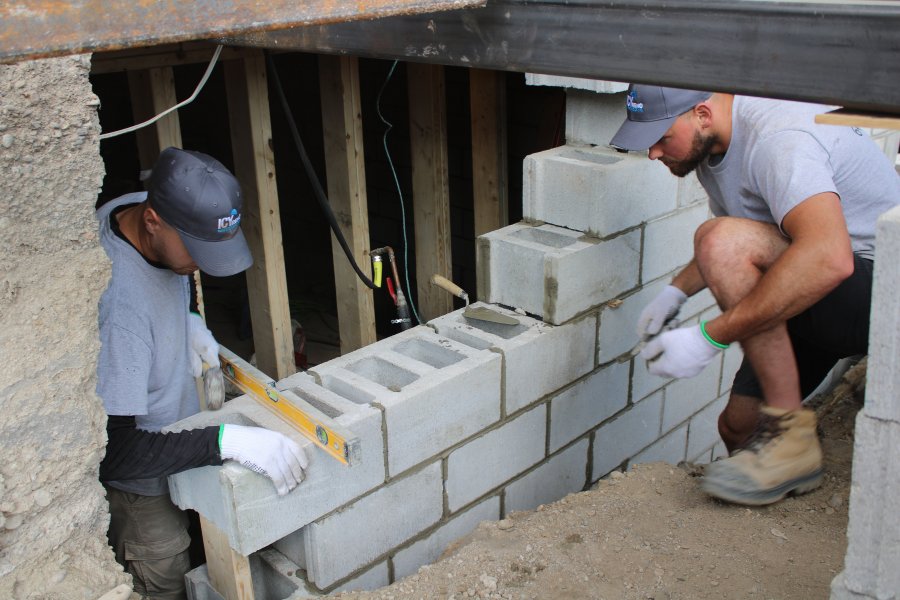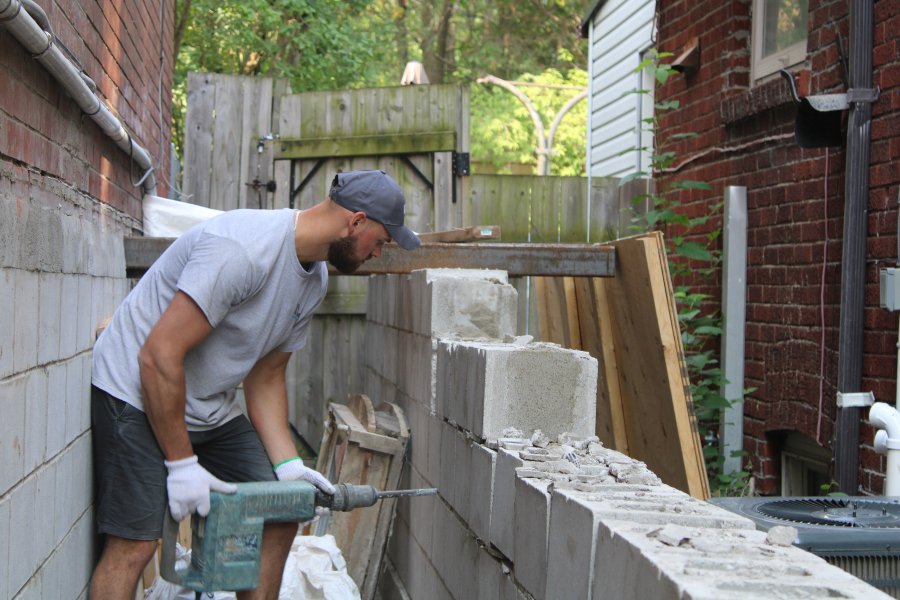Basement underpinning is one of the most transformative home renovations you can undertake in Toronto. It gives you more headroom, extra living space, and can even improve your property’s value. But underpinning is not just “digging deeper and pouring concrete”, It’s a structural modification that comes with real risks, risks that, if not managed properly, could affect your home, your neighbors, and even your wallet.
This is where insurance and liability come in. Understanding what coverage you need, what questions to ask your contractor, and how to protect yourself legally can save you headaches, and thousands of dollars, down the road.
Why Insurance is Critical for Underpinning Projects
Underpinning involves digging beneath your home’s foundation and adding support. Even a minor miscalculation can lead to soil shifts, foundation cracks, or structural failure. In Toronto, especially in older neighborhoods like Liberty Village, Cabbagetown, or Danforth, homes are closely packed. One homeowner’s renovation can have ripple effects on multiple properties,
Insurance is your safety net. It ensures that if something goes wrong, whether it’s damage to your home, a neighboring property, or an accident on site, you won’t be left paying for repairs or legal costs out of pocket.
Even experienced contractors can run into unexpected issues. That’s why verifying insurance is one of the first things you should do before signing a contract.
Types of Insurance Your Contractor Should Have
Not all insurance is created equal. Standard liability coverage is usually insufficient for underpinning work. Here’s what you should look for:
1. General Liability Insurance
Covers property damage or injury that happens during construction. Make sure it specifically includes underpinning or foundation work.
2. WSIB Clearance
The Workplace Safety and Insurance Board ensures that any workers injured on-site are covered. Confirm your contractor is in good standing, which also protects you from liability.
3. Certificate of Insurance
Ask for a certificate naming your home as an additional insured property. This formal document proves coverage and provides details if a claim arises.
4. Coverage Limits
In Toronto, underpinning projects typically require a minimum of $2 million in liability coverage. Higher-risk sites, such as those involving older or shared walls, may require even more.
Risks Insurance Covers
Proper insurance shields you from financial fallout in case of:
- Structural Damage, Accidental cracking, settling, or collapse during underpinning
- Neighboring Property Damage, Soil movement or vibrations can affect adjacent homes
- Injuries on Site, Construction accidents involving workers or passersby
- Legal Costs, Fees from defending claims or lawsuits if damage occurs
Insurance doesn’t eliminate risk, but it ensures that if problems happen, you’re financially protected.
Neighbor Concerns & Shared Walls
In dense Toronto neighborhoods, underpinning doesn’t just impact your property, it can impact your neighbors.
- Pre-Construction Survey
Before work begins, a survey of neighboring homes is recommended. Document existing cracks, settling, or water damage. This protects you from claims if issues appear during underpinning. - Communication & Agreements
Inform neighbors about the project timeline, noise, and excavation impacts. In cases of shared walls, a formal agreement, like a Party Wall Agreement, may be legally required. This ensures both parties understand responsibilities and liability. - Insurance Notification
Let your insurance provider know if the work affects shared walls. This ensures that any claims for neighbor damage are covered under your policy.
Legal Considerations in Toronto
Toronto’s building code requires permits for underpinning, especially if you’re lowering a basement or altering structural elements. The permit process also includes:
- Structural Engineer Approval, Your underpinning plan must be reviewed and stamped by a licensed engineer
- Building Permits, Necessary before excavation begins. The permit ensures that work is code-compliant
- Municipal Inspections, Inspectors may check your excavation and underpinning stages to ensure safety
Failing to follow these rules can result in fines, insurance denials, and even being forced to undo the work.
Questions to Ask Your Contractor
Before any underpinning work begins, ensure your contractor can answer the following:
-
Do you carry insurance specifically for underpinning work?
-
Can I see a Certificate of Insurance naming my property?
-
Are all workers covered by WSIB?
-
Have you worked on homes with shared walls or in tight Toronto neighborhoods?
-
What is your plan for soil stabilization, excavation safety, and neighbor protection?
Getting clear answers is better than discovering gaps in coverage after damage occurs.

Protect Yourself as a Homeowner
Even if your contractor is fully insured, there are steps you can take to minimize risk:
- Notify Your Insurer, Let your homeowner’s insurance company know about the project. Ask how the work may affect coverage
- Maintain Records, Keep all contracts, permits, and insurance documents in a dedicated file
- Document Your Home, Take photos or video of the basement, walls, and any visible cracks before work begins
- Monitor Progress, Visit the site periodically or hire a third-party inspector to ensure underpinning follows the engineer’s plan
These precautions demonstrate diligence, which can be valuable if a claim arises.
Choosing the Right Contractor in Toronto
Toronto’s dense, older neighborhoods present unique challenges. Look for contractors with:
-
Experience in Urban Underpinning, Working in tight lots with older foundations requires skill
-
Engineering Partnerships, A contractor who works closely with structural engineers ensures design and execution are aligned
-
Transparent Communication, Expect plain-language explanations, not technical jargon
-
Strong Local Reputation, Check reviews, references, and past projects in Toronto neighborhoods similar to yours
A trustworthy underpinning contractor is not just skilled, they protect you legally and financially.

Basement underpinning in Toronto is a powerful way to expand your home, address settlement issues, or enhance structural stability. But it comes with responsibility. Understanding insurance and liability considerations protects you from financial risk and helps maintain good relationships with neighbors,
Before you dig, verify insurance, confirm WSIB coverage, consult your insurer, and document everything. In Toronto’s tight-knit, older neighborhoods, these steps can mean the difference between a smooth, successful project and an expensive legal or structural nightmare.
At IcyReno, we combine expert underpinning services with comprehensive insurance and liability awareness, ensuring your basement renovation is safe, compliant, and worry-free. Contact us today to schedule a consultation and learn how we protect your home while enhancing its foundation.


